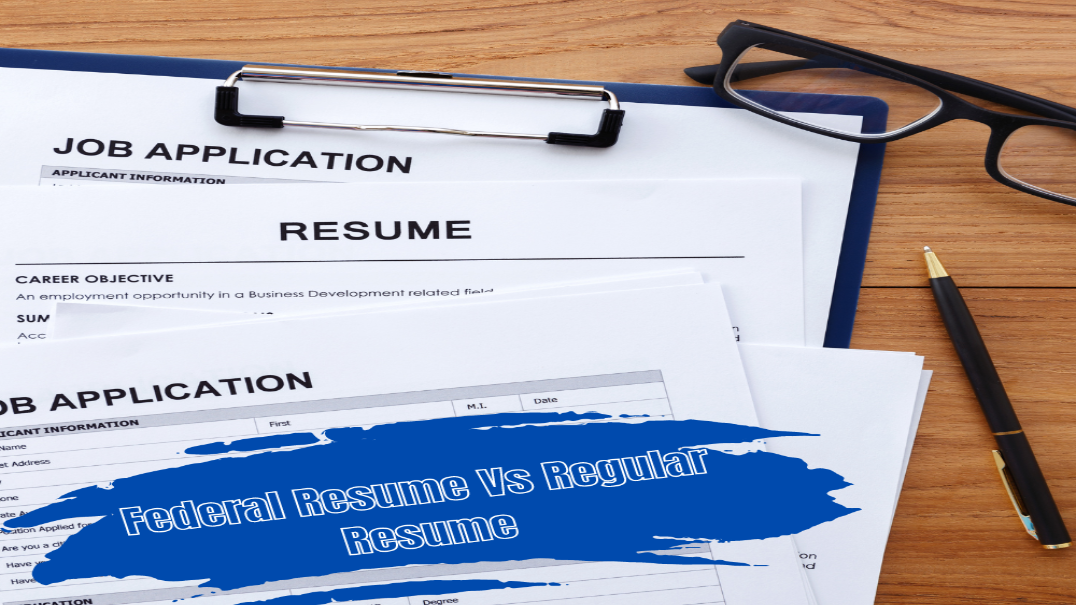When we apply for a job , we need to to know which resume is required
there. Consider the following differences:
Length
One of the most significant differences between a federal resume and
a regular resume is the length. Federal resumes are typically much
longer than regular resumes and can be anywhere from three to five
pages long. This is because federal resumes are required to include
much more detailed information about an applicant's qualifications,
experience, and training.
On the other hand, regular resumes are typically no more than two
pages long and are designed to be concise and easy to read.
Content
Another key difference between a federal resume and a regular resume
is the content. Federal resumes are required to include much more
detailed information than regular resumes. For example, federal
resumes are required to include information about an applicant's
citizenship, veterans' preference, and professional references.
In contrast, regular resumes are typically tailored to the specific
job for which the applicant is applying and are designed to showcase
an applicant's relevant skills and experience.
Format
Federal resumes are typically written in a specific format that is
designed to highlight an applicant's qualifications and experience.
This format includes a detailed work history section, a skills
section, and an education section
In contrast, regular resumes do not have a specific format and can
be formatted in any way that showcases an applicant's skills and
experience.
Evaluation
Finally, federal resumes are evaluated differently than regular
resumes. Federal agencies are required by law to evaluate applicants
based on a range of factors, including job-related experience,
education, and qualifications.
In contrast, regular resumes are evaluated based on an applicant's
relevant skills and experience.




